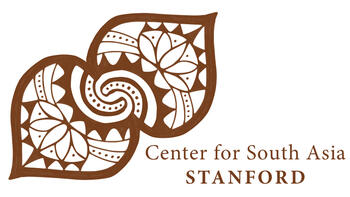How India Works: Caste, Community and the Indian Economy
How India Works: Caste, Community and the Indian Economy
Thursday, March 2, 201712:00 PM - 1:30 PM (Pacific)
Encina Hall, Third Floor, Central, C330
616 Jane Stanford Way, Stanford, CA 94305
Since its independence, India’s statesmen, policymakers and social scientists all firmly believed that the entrenched hierarchical caste order and the deep divisions between religious communities would become less salient, and perhaps wither away, as the country developed a modern economy and a new division of labor based on skill and merit rather than a ‘traditional’ inherited status. Today, after seven decades of democracy and steady economic growth, it is clear that both caste and religious community are as important as ever. Rather than disappearing, these cultural identities and social networks have evolved along with the economy. A closer look at how the Indian economy is organized reveals that caste and community fundamentally shape how labor is organized, how markets function, how urban development happens, and how industry is owned and organized. Two case studies, one of skilled labor in South India and another of the structure of industrial growth in a city in central India, will illustrate how India actually works.

As the Director of Stanford’s Center for South Asian Studies, Hansen is charged with building a substantial new program. He has many and broad interests spanning South Asia and Southern Africa, several cities and multiple theoretical and disciplinary interests from political theory and continental philosophy to psychoanalysis, comparative religion and contemporary urbanism..

Aruna Ranganathan studies questions of work and employment in the context of economic development. By applying novel methods that combine field-experimental and quantitative research designs with ethnography and interviews, Aruna's research investigates how low-income occupations in developing countries are governed, organized, seek meaning through their work and navigate the market. Through her research, Aruna strives to advance our theoretical understanding of work, while informing the design of labor-market institutions and policy for the developing world. In previous projects based in India, Aruna has studied the boom of IT and business process outsourcing, the professionalization of plumbing, price-setting behavior among handcraft artisans and the transition of women into formal employment in garment factories.
About the colloquia:
In 2014, Indian voters gave Narendra Modi and the BJP a mandate to accelerate India’s economic reforms and revitalize its foreign relations, in particular with the United States and with partners in East Asia. But the pace and depth of reforms and economic transformation have not met the high expectations, despite strong GDP performance. Economic growth remains uneven, job creation sluggish, and massive infrastructural and administrative problems continue to trouble many sectors of the economy. After twenty-five years of economic reforms, India’s potential as a new global industrial hub has still not been realized and its vast resources of labor and talent remain underdeveloped.
During the 2017 winter and spring quarters Shorenstein APARC and the Center for South Asia will host a series of lectures and discussions that explore what makes India democratic and dynamic, and the obstacles that prevent the country from realizing its enormous potential.
Also, in 2017, the next Global Entrepreneur Summit will be in India, sequel to the 2016 Stanford-hosted Summit. This colloquium will help prepare for that event by reaching out to scholars, students, interested stakeholders, business leaders and others in the Bay Area.
This colloquia is co-sponsored with the Stanford Center for South Asia

